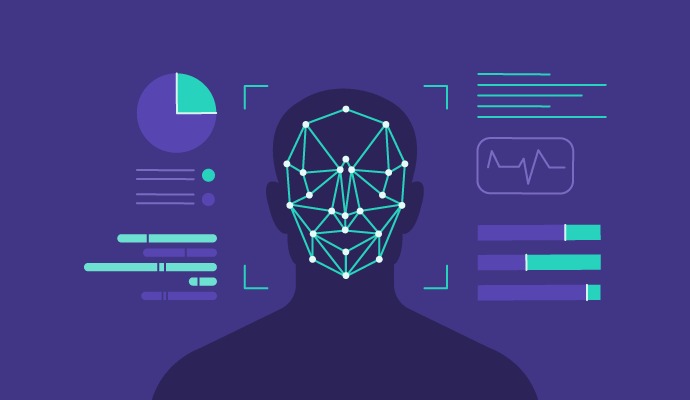Police can search 50m licenses using face recognition

Exclusive: Privacy campaigners argue that a clause in the new criminal justice bill will place all UK drivers in a permanent police lineup.
Police gain the ability to conduct facial recognition searches on a database encompassing images of the UK’s 50 million driving license holders, thanks to a discreet government law change. With this legislation, authorities can search license records for matching images obtained from CCTV or shared on social media, potentially creating a constant police lineup for every driver, as highlighted by privacy advocates.
Facial recognition searches compare the biometric measurements of a recognized photograph, like the ones found on driving licenses, with those of an image detected elsewhere.
The bill doesn’t explicitly mention the intention to allow the police or the National Crime Agency (NCA) to utilize the UK’s driving licence records, a fact criticized by leading academics who argue that the government is discreetly introducing the measure.
Upon the enactment of the criminal justice bill, Home Secretary James Cleverly must establish “driver information regulations” for these searches. However, the bill specifies that he only needs to consult with police bodies.
Critics assert that facial recognition technology threatens individual rights to privacy, freedom of expression, non-discrimination, and freedom of assembly and association. Police increasingly employ live facial recognition, comparing live camera feeds to a database of known identities at major public events like protests.
Professor Peter Fussey, a former independent reviewer of the Met’s use of facial recognition, highlights insufficient oversight of facial recognition systems’ usage. Concerns persist as ministers remain notably silent on studies revealing the technology’s tendency to falsely identify black and Asian faces.
He stated, “This is another instance of how facial recognition surveillance is expanding without clear boundaries or independent oversight. The minister argues for the usefulness and convenience of such technologies. However, the mere convenience or utility perceived by the police does not justify overriding the legal human rights protections they are obligated to uphold.”
Access to driving licence records falls under regulations tied to the Criminal Justice and Court Services Act 2000, requiring the police to demonstrate a legitimate cause related to violations, primarily of road traffic acts.
An explanatory note in the new criminal justice bill clarifies that “clause 21 specifies who can access driver data and enables regulations for access to DVLA driver information for all policing or law enforcement purposes.”
During a committee sitting on December 12th, Policing Minister Chris Philp made the first explicit reference to the apparent undisclosed purpose of the legislative change. Questioning Graeme Biggar, the director general of the National Crime Agency, Philp stated, “There is a power in clause 21 to allow police and law enforcement, including the NCA, to access driving licence records for a facial recognition search, which is currently quite difficult. When you receive a crime scene image from CCTV, do you agree it would be useful to do a facial recognition search across DVLA records as well as the other records that can currently be accessed?”
Biggar affirmed, “Yes, it would. It is crucial for us to use facial recognition more. I know that is an issue you have been championing.”
The EU had considered making images from its member states’ driving licence records available on the Prüm crime-fighting database. However, the proposal was dropped earlier this year due to concerns about disproportionate breaches of privacy.
Philp is known to support facial recognition technology and has urged the police to use it more frequently. The Home Office is currently seeking to integrate data from the police national database (PND), the Passport Office, and the EU settled status database into a unified system to facilitate police finding an image match with a “click of one button.”
A Home Office spokesperson clarified, “Clause 21 in the criminal justice bill addresses the law regarding safeguarding and accountability of police force’s use of DVLA records. It does not permit automatic access to DVLA records for facial recognition. Any further developments would be subject to additional engagement, as the public would expect.”
Carole McCartney, a law and criminal justice professor at the University of Leicester, raised concerns about the legitimacy of the new powers due to the lack of consultation over the change in law.
She commented, “This is another step down the ‘slippery slope’ of granting police access to any data they choose, with minimal safeguards. Where is the public debate? How can this be considered legitimate if the public does not endorse the use of the DVLA and passport databases in this manner?”
The government eliminated the role of the commissioner for the retention and use of biometric material and the office of surveillance camera commissioner in the summer, leaving ministers without an independent watchdog to scrutinize such legislative changes.

Chris Jones, the director at Statewatch, a civil liberties NGO, urged MPs to reject the controversial change, stating, “There has been no public announcement or consultation over this plan, which will place anyone in the country with a driving licence into a permanent police lineup. Opening civil databases to mass police searches categorizes everyone as a suspect from the outset. More surveillance and snooping powers will not enhance public safety.”
In 2020, the court of appeal ruled that South Wales Police’s use of facial recognition technology had violated privacy rights, data protection laws, and equality laws, citing the risk of technology exhibiting race or gender bias. Despite this, the force has continued to use the technology, deploying live facial recognition to identify individuals attending Christmas markets this year against a watchlist.
Katy Watts, a lawyer at the civil rights advocacy group Liberty, expressed concern, stating, “This is a shortcut to widespread state surveillance, and we should all be worried by it.”


